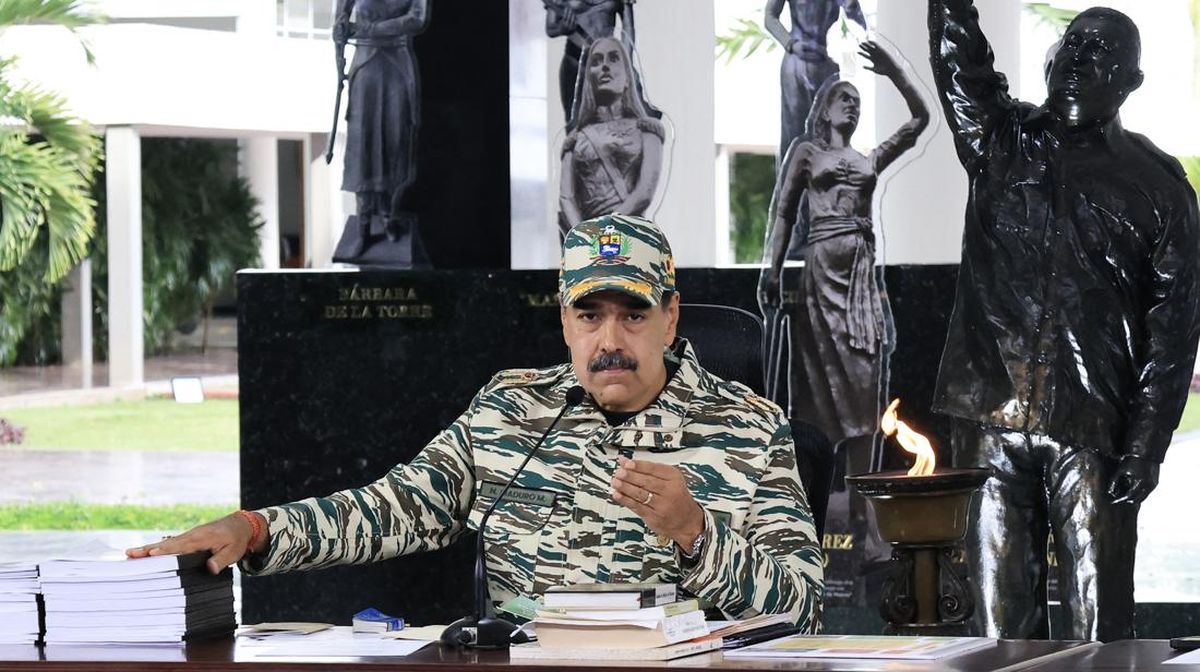By Mattathias Schwartz
October 7, 2025 — 3.09pm
When US President Donald Trump’s plan to deploy National Guard troops to Portland hit a major snag at the weekend, it did so at the hands of one of his own judicial nominees.
“This is a nation of constitutional law, not martial law,” Judge Karin Immergut, 64, wrote in an order on Saturday in rejecting the administration’s claims that it needed military support to protect federal property and enforce immigration law, what she called an “extraordinary measure”.

Karin Immergut is sworn in as a US District Court judge in 2018.Credit: Getty Images
Arguments made by Trump’s Justice Department, she continued, “risk blurring the line between civil and military federal power – to the detriment of this nation”.
Hours earlier, after a Friday hearing before Immergut, White House deputy chief of staff Stephen Miller, who is the architect of Trump’s push to deploy United States soldiers on their own soil, said the problem lay elsewhere. “Far-left Democrat judges,” he said, were obstructing the administration’s attempt to “dismantle terrorism and terror networks”.
But Immergut is anything but a far-left judge. When Trump first nominated her to the federal bench in 2018, she arrived with strong conservative credentials, and her career shows a willingness to pursue cases no matter which party’s ox is gored. As a lawyer during the 1990s, she served under Ken Starr during his investigation of President Bill Clinton.
She personally questioned Monica Lewinsky about the details of her affair with Clinton before a grand jury, successfully eliciting fine-grained specifics of their sexual encounters that critics would later call salacious when they appeared in Starr’s report.

Donald Trump in the Oval Office on Monday.Credit: Bloomberg
During the next two decades, she built a career as a federal prosecutor, first in California and then in Oregon. She prosecuted white-collar fraudsters, money launderers and drug traffickers. In 2003, she was chosen by President George W. Bush to be the US attorney for the District of Oregon, supervising dozens of prosecutors and overseeing high-profile terrorism cases.
As a prosecutor, Immergut was “incredibly hardworking” and “apolitical in her approach”, Billy J. Williams, who has known her since the 1990s, said. He also went on to lead Oregon’s US attorney’s office, first under president Barack Obama and then continuing through Trump’s first term. “When she’s on the bench, she’s an incredible listener who isn’t afraid, in the moment, to either make a statement or ask deeper questions. She’s always prepared.”
Scott Asphaug, who also worked under Immergut during her time as Oregon’s chief federal prosecutor, said she told her team to “do the right thing for the right reason”.
“Our job was not simply to win,” he said. “Our job was to act in a judicious and just manner.”

Police and federal officers throw gas canisters to disperse protesters near a US Immigration and Customs Enforcement facility in Portland, Oregon, on Sunday.Credit: AP
In an emergency hearing on Sunday night, Immergut clarified her restraining order, barring the administration from sending in National Guard troops from any other state. Having already ruled that Trump lacked a legal basis for sending the military, she warned the administration could be “in direct contravention” of her order, citing reports that troops from Texas and California could soon be on their way.
“Aren’t defendants simply circumventing my order?” she asked. “Why is this appropriate?”
Like Immergut, Williams was working out of the Mark O. Hatfield Courthouse in downtown Portland in the summer of 2020. That was when Attorney General Bill Barr sent federal agents to Portland to deal with crowds who had gathered around the courthouse to protest the death of George Floyd at the hands of police.
Williams said that while parts of downtown Portland did resemble a “war zone” in 2020, the circumstances of the current protests, which are smaller in scale and concentrated around an ICE building in South Portland, were “vastly different”.

A protester confronts police during a protest near an ICE facility in Portland on Monday.Credit: AP
“I don’t fault ICE for doing their work,” he said. “I believe in law and order. And people get to protest it, so long as that’s done in a lawful manner. It’s a careful balance.”
Immergut’s ruling, he said, “was based on the facts of 2025, not 2020; what’s happening now is nothing like what happened then”.
The judge has not yet made a final ruling on the merits of the case. Her temporary restraining order will expire this month, and a trial is scheduled in Portland for the morning of October 29.
The Trump administration has appealed Immergut’s initial ruling to the 9th US Circuit Court of Appeals.
Loading
And on social media, Miller is not letting Immergut’s conservative background interfere with his attacks on the legitimacy of her rulings. Her order, he wrote, amounted to an attempt to “nullify the 2024 election by fiat”. On Monday, he called her a “district court judge with no conceivable authority, whatsoever, to restrict the President”, and an “Oregon judge”.
On Sunday, Trump addressed his selection of Immergut more directly, telling reporters that “if they put judges like that on, I wasn’t well served by the people who picked judges”.
But while he seemed to be cognisant of the fact that one of his nominees had ruled against him, his awareness did not extend to that judge’s gender. Trump repeatedly referred to Immergut as “he” and “him”.
“That judge ought to be ashamed of himself,” he said.
This article originally appeared in The New York Times.
Get a note directly from our foreign correspondents on what’s making headlines around the world. Sign up for our weekly What in the World newsletter.
Most Viewed in World
Loading


















































